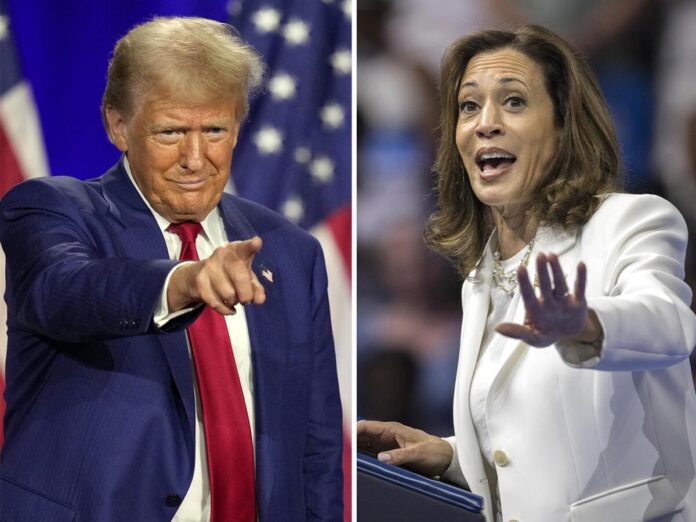As the 2024 U.S. presidential race intensifies, a closer look at the financial support reveals an interesting trend among America’s billionaires. While many of the ultra-wealthy have lined up behind Vice President Kamala Harris, former President Donald Trump has also secured backing from a strong group of powerful figures, including tech mogul Elon Musk. Here’s how their billionaire supporters stack up.
Harris Leads with Major Tech and Media Support
Kamala Harris is leading the race when it comes to securing billionaire endorsements. According to reports, 81 billionaires have thrown their financial weight behind Harris, while Trump has gained support from 50. Harris has drawn backing from many of the biggest names in tech, media, and finance, sectors that thrive on innovation and a stable business environment.
Billionaires like LinkedIn co-founder Reid Hoffman, Facebook’s Sheryl Sandberg, and former New York City mayor Michael Bloomberg are some of the prominent figures supporting Harris. Hoffman, in particular, has been vocal about his desire to counter Trump’s influence. Media tycoon Laurene Powell Jobs, the widow of Apple co-founder Steve Jobs, is also on Harris’ side, along with Netflix CEO Reed Hastings.
These endorsements come from industries that align with Harris’ policy priorities, such as renewable energy, tech, and healthcare. Her supporters are betting on a future shaped by advancements in these sectors, and they view Harris as someone who will create an environment conducive to long-term growth and stability.
Trump Holds Ground with Traditional Industries and Musk’s Tech Influence
While Harris has captured the attention of the tech elite, Donald Trump has held his ground with support from billionaires tied to traditional sectors like real estate, energy, and manufacturing. Notable backers of Trump include Miriam Adelson, the widow of casino magnate Sheldon Adelson, Home Depot co-founder Bernard Marcus, and oil magnate Harold Hamm.
Adding to this mix is Elon Musk, who has expressed his support for Trump despite his ties to the innovative tech community. Musk’s backing signals a complex relationship between traditional business interests and the tech industry, as he navigates both worlds. His support may stem from a desire for continued deregulation and tax policies that favor innovation and entrepreneurship.
These billionaires are drawn to Trump’s pro-business stance, particularly his commitment to deregulation and tax cuts. For instance, Marcus and Hamm have been strong advocates for Trump’s policies that benefit energy and manufacturing, sectors that often feel burdened by government oversight.
Trump’s backers have benefited from his previous administration’s tax policies, which provided significant relief to corporations and high-net-worth individuals. They see Trump as a candidate who will continue to push for policies that favor low taxes and fewer restrictions on businesses.
Different Visions, Different Donors
The split between Harris and Trump’s billionaire backers reflects a broader divide in the business world. Harris’ supporters are concentrated in industries that are future-focused, such as tech, media, and green energy. These sectors rely on innovation and tend to favor policies that address climate change, healthcare reform, and diversity initiatives—areas where Harris has been outspoken.
In contrast, Trump’s backers represent more traditional industries like real estate, fossil fuels, and manufacturing, which favor deregulation and low taxes. These industries benefit from Trump’s policies aimed at cutting government red tape and promoting business-friendly environments.
As we approach the 2024 election, it’s clear that the billionaire class is divided not just in numbers but in vision. Harris’ base of support sees the future in new technologies and social progress, while Trump’s backers, including influential figures like Musk, favor preserving the policies that have traditionally supported American industry.




